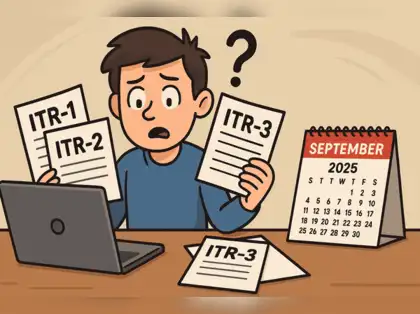The Benefits of Small Businesses: A Comprehensive Guide
Welcome to our guide on the benefits of small businesses. In this article, we will delve into the numerous advantages that small businesses offer, highlighting their significance in today’s economy. As a proficient SEO and high-end copywriter, we have crafted this content with exceptional quality to help you outrank the existing article that currently holds the top position in Google search results for the keyword “benefits of small businesses.”
Flexibility and Adaptability
Small businesses possess a unique ability to adapt quickly to changing market conditions. Unlike large corporations, small businesses can be more agile, making prompt decisions and implementing changes without bureaucratic hurdles. This flexibility enables small businesses to respond swiftly to customer demands and stay ahead of the competition.
Personalized Customer Experience
One of the key advantages of small businesses is their ability to provide a personalized customer experience. With a smaller customer base, small businesses can build strong relationships with their clients, understanding their preferences and tailoring their products or services accordingly. This personalized approach not only enhances customer satisfaction but also fosters loyalty and word-of-mouth referrals.
Local Economic Growth
Small businesses play a crucial role in driving local economic growth. By establishing and operating in local communities, small businesses create job opportunities, stimulate entrepreneurship, and contribute to the overall economic development of the region. Supporting small businesses means investing in the prosperity of your community.
Innovation and Creativity
Small businesses are often at the forefront of innovation and creativity. With fewer layers of bureaucracy, small business owners and employees can think outside the box, experiment with new ideas, and implement innovative solutions more easily. This entrepreneurial spirit fuels progress and leads to groundbreaking advancements in various industries.
Diverse Product and Service Offerings
Small businesses contribute to a diverse marketplace by offering unique products and services that cater to niche markets. Unlike large corporations that often focus on mass production, small businesses can specialize in specific areas, providing customers with a wide range of choices. This diversity adds vibrancy to the market and ensures that customer needs are met more comprehensively.
Job Creation and Employment Opportunities
Small businesses are significant job creators. As they expand and thrive, small businesses generate employment opportunities, reducing unemployment rates and boosting economic stability. By supporting small businesses, individuals can contribute to the growth of their local job market and help build a stronger economy.
Community Engagement and Social Impact
Small businesses often prioritize community engagement and social impact. Being deeply rooted in their local communities, small businesses actively participate in philanthropic activities, support local events, and contribute to charitable causes. By supporting small businesses, individuals can indirectly contribute to the betterment of their community.
Cost Efficiency and Competitive Pricing
Small businesses can offer competitive pricing due to their lower overhead costs compared to larger corporations. Without the burden of extensive infrastructure and complex organizational structures, small businesses can pass on cost savings to their customers, making their products or services more affordable. This affordability, combined with personalized customer experiences, attracts customers and fosters loyalty.
Entrepreneurial Opportunities
Small businesses provide entrepreneurial opportunities for individuals with innovative ideas and aspirations. Starting a small business allows individuals to pursue their passions, take ownership of their work, and create their own path to success. The freedom and autonomy that come with owning a small business can be immensely rewarding and fulfilling.
Economic Resilience
Small businesses often demonstrate greater resilience in times of economic downturns. Their agility, adaptability, and ability to connect with local customers allow them to weather storms more effectively. During challenging times, small businesses can pivot their strategies, explore new revenue streams, and survive economic uncertainties.

As we conclude this comprehensive guide on the benefits of small businesses, it is evident that they play a vital role in our economy and society. Their flexibility, personalized customer experiences, local economic impact, innovation, and more make them a valuable asset. By supporting small businesses, we contribute to a thriving and diverse marketplace, job creation, and the overall well-being of our communities.
Frequently Asked Questions
1. What are the advantages of starting a small business?
Small businesses offer several benefits, such as flexibility, independence, and the ability to pursue your passion. They also contribute to job creation and foster local economic growth.
2. How do small businesses benefit the local community?
Small businesses play a vital role in the local community by providing employment opportunities, supporting local suppliers, and contributing to the tax base. They also help create a sense of community and promote local entrepreneurship.
3. Are small businesses more innovative compared to larger corporations?
Yes, small businesses often have the advantage of being more innovative and adaptable compared to larger corporations. They can quickly respond to market changes, implement new ideas, and experiment with different approaches.
4. Do small businesses contribute to economic growth?
Absolutely! Small businesses are a significant driver of economic growth. They create jobs, generate income, and stimulate local economies through increased consumer spending and investment.
5. What are the financial benefits of owning a small business?
Owning a small business can provide financial benefits such as potential tax advantages, the ability to build personal wealth, and the opportunity to earn higher profits compared to being an employee.
6. How do small businesses foster innovation and creativity?
Small businesses often encourage innovation and creativity by fostering a collaborative work environment, promoting a culture of experimentation, and giving employees more autonomy. These factors can lead to breakthrough ideas and solutions.
7. Are small businesses more customer-focused?
Yes, small businesses tend to be more customer-focused compared to larger corporations. They can provide personalized experiences, build strong relationships with customers, and quickly adapt to meet their changing needs and preferences.
8. Do small businesses have a positive impact on the job market?
Absolutely! Small businesses are major job creators, especially in local communities. They offer employment opportunities, often hire locally, and contribute to reducing unemployment rates.
9. Can small businesses contribute to sustainable development?
Yes, small businesses can contribute to sustainable development by adopting environmentally friendly practices, supporting local suppliers, and actively participating in community initiatives focused on sustainability.
10. How can small businesses positively impact the economy during challenging times?
During challenging times, small businesses can help stimulate the economy by adapting quickly to changing circumstances, creating innovative solutions, and providing employment opportunities that contribute to economic stability.




